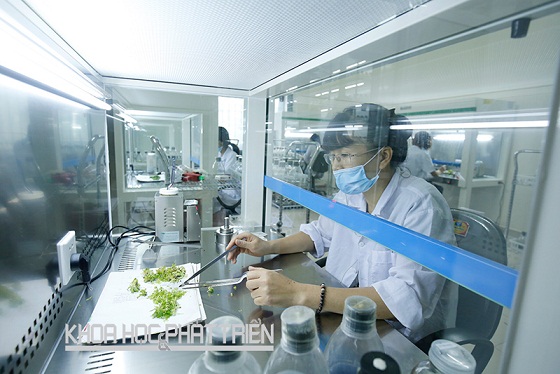VietNamNet Bridge – Only in 2004 did Vietnam began implementing legal action to protect plant varieties.

By 2017, the Plant Variety Protection Office (PVPO) had granted protection titles to 453 varieties, including 270 varieties of domestic subjects.
Meanwhile, Vietnam has up to 35,000 plant variety specimens kept at the national plantation gene bank.
A PVPO report showed that to date the office has received 1,000 applications for protection titles from both domestic and foreign subjects. Of these, the applications for protecting rice varieties accounts for the largest proportion, followed by maize, vegetables and flowers.
Of the plant varieties on the protection list, 120 are rice varieties. However, the figure is too small compared with 7,000 rice varieties being kept at the national plant gene bank, which just accounts for 1.7 percent. And if comparing the number of protected plant varieties (270) with 35,000 plant varieties kept at the bank, the proportion would be 0.8 percent only.
However, according to PVPO Chief Secretariat Nguyen Thanh Minh, the demand for having plant varieties protected has been increasing in recent years. Since 2004, the office has received 74.4 applications every year.
In 2016 alone, the office received 185 applications and the same number of applications came in just the first seven months of 2017.
“We expect to receive 300 applications this year,” he said.
“The number of applications is on the rise which shows that Vietnamese enterprises have realized the benefits of having plant varieties protected,” he explained, adding that his office received 644 applications from domestic subjects in 2016.
With protection titles, inventors’ benefits can be protected by law. Hoang Hau Dragon Fruit Company Ltd has to pay VND2 billion for the right to use the LD5 dragon fruit invented by the Southern Horticultural Reserach Institute. A series of rice varieties have been transferred at high prices, which has changed scientists’ thoughts.
Dinh Thi Dinh from the Fruit Vegetable Research Institute said she is going to apply for the protection title of some flower varieties.
“In the past, our products were only enough to provide to the domestic easy-to-please market, therefore, we did not care about the variety protection. But now, our products have higher quality and we have begun thinking of exporting them,” she explained.
However, analysts said that the majority of varieties’ owners don’t intend to get protection titles for their varieties. The high cost and long time for procedures are the two reasons that made them hesitate.
Prof Vu Van Liet, director of the Institute of Crops Research and Development, the inventor of 2 protected rice and 1 maize variety, said it cost several billions of dong to get a protection title.
RELATED NEWS
Plant gene conservation: world-class technology used manually in VN
Scientists use bacteria to speed up growth of ginseng roots